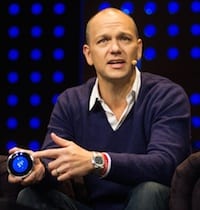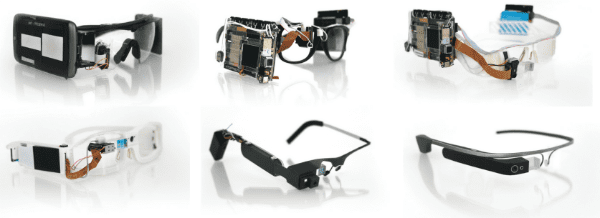Last week, Google announced the end of their Google Glass “Explorer” program. What was perceived by some as the end of Google Glass was really just Google announcing that they are ending the Explorer beta program and focusing on building the next iteration of the product. Of course skeptics may say this was Google admitting failure without actually admitting failure, but I disagree.
Why?  Because the Googler heading up the next phase of Glass is Tony Fadell, the man behind Nest and previously the iPod. I don’t think Google would put his name behind something they are taking lightly.
Because the Googler heading up the next phase of Glass is Tony Fadell, the man behind Nest and previously the iPod. I don’t think Google would put his name behind something they are taking lightly.
But what does this all mean for field service? A few thoughts…
1. The promise of a glasses-based wearable computer for field service is not dead. In fact, we may have no idea right now what a truly usable form factor would look like. It may look nothing like Glass as we know it. I think we can all agree that it was fun to imagine the possibilities with the previous version of the Glass, but realistically, the technology just wasn’t quite there yet. But perhaps the next one will be.
2. While Tony Fadell will undoubtedly improve the practicality and usability of Glass, he is best know for being a consumer products guy. So, one would think that this next phase will be more directed at the consumer market. At the same time, Glass appears to still be an open platform which means enterprise apps can certainly be built. The question is: will Glass hardware and software be enterprise-ready? Will it be a neutral technology that addresses both consumer and enterprise applications?
3. While even organizations like Gartner are bullish on the promise of technologies like Glass, something drastic will have to change to make it intuitive enough for enterprise applications. Just moving from paper work orders to mobile devices has required a cultural shift at many companies. With the Glass user interface the way it is today, the training and culture changes would have to be even bigger (and maybe unlikely) for successful adoption. So, the way a person uses and interacts with the technology would have to see a pretty big update. But someone like Tony Fadell may be the guy to do it.
In short, Glass (and all smart-glasses) is a “wait and see” technology for field service. To date it has been a very polarizing technology, with some very vocal bears and bulls. Ultimately, we are just going to have to sit back and wait for the next phase of Glass (or a glasses product from another company) to decide whether this technology will be a game-changer for field service or just a bunch of hype that was at least fun to speculate about.


Share this: